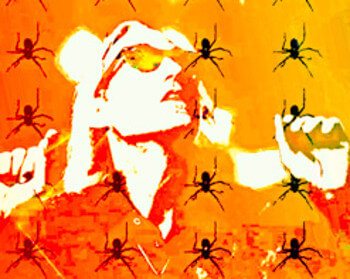“Restorative Practices of Wellbeing” by Natureza Gabriel Kram
Restorative Practices of Wellbeing: A Compendium of Restorative Practices is Natureza Gabriel Kram’s meditation on how, through a mixture of indigenous and spiritualistic practices molded into a homeopathic milieu, growing cases of severe trauma experienced by the population can be accurately and acutely addressed. “…the vast majority of Americans are lonely,” Kram writes. “Fifty-four percent say no one knows them well.
Forty-six percent say they always feel alone. Loneliness is a consistent underlying pathology across all categories of mental illness…Lonely people are mentally unwell because, physiologically-speaking, it is very hard to turn on your Connection System—the biological foundation of well-being—in the absence of other people and Nature. Disconnected people are not well physically, emotionally, or mentally. This is because we can’t be well without one another and the Living World. We can’t be well outside of relationship, outside of connection. Like all animals, we need our nest.
Facebook is not a nest.” Hence, the introduction of the titular subject. It’s an amalgam Kram swears by, and as a reader as you progress through Restorative Practices’ pages is continually reinforced through extensive, detailed examples, walk-throughs, and scenarios. Kram does a good job of breaking things down step-by-step, making otherwise visceral and potentially translucent concepts wholly understandable and well-articulated. This is particularly pertinent to passages detailing what Kram insinuates can be the causal factors of trauma necessitating said restorative practices, chief amongst them being betrayal. “(Betrayal) is one of the most challenging experiences to metabolize,” he states. “…The first betrayal we can’t stop, but the second we do to ourselves. Betrayal, when it happens with someone close us, as is often the case in infidelity, or sexual abuse, evokes a primal sense of shame in us.
AMAZON: https://www.amazon.com/Restorative-Practices-Wellbeing-Natureza-Gabriel/dp/1736280317
We are shocked by the experience, which is biologically unexpected. We don’t expect a threat to come from within our perimeter. There is a part of us that refuses to metabolize it…And we may try to dismiss it, or explain it away, particularly if our stress response patterns involve fawning, or flight. We may simply shut down…(Alternative paths are) difficult indeed, (turning) toward(s) the betrayal…betrayal, like other complex relational experiences, evokes multiple layers of physiology and emotion, directed both outwards and inwards. You aren’t crazy. You are experiencing multiple layers.”
Part of crafting a successful nonfiction book is still retaining the traits of a good storyteller. Given that the left-brain content here is so weighty in terms of emotion, Kram would do himself a disservice above all others to not showcase said traits. But he does so in spades. You feel genuinely invested in the emotive aspects of the read, particularly in his repeated articulations highlighting social isolation. It’s a concept that would be effective regardless of the medium in which it is presented. As a result, Kram not only provides a detailed roadmap to alternative and proven methods of healing, but he makes the process genuinely compelling as well…
Nicole Killian








